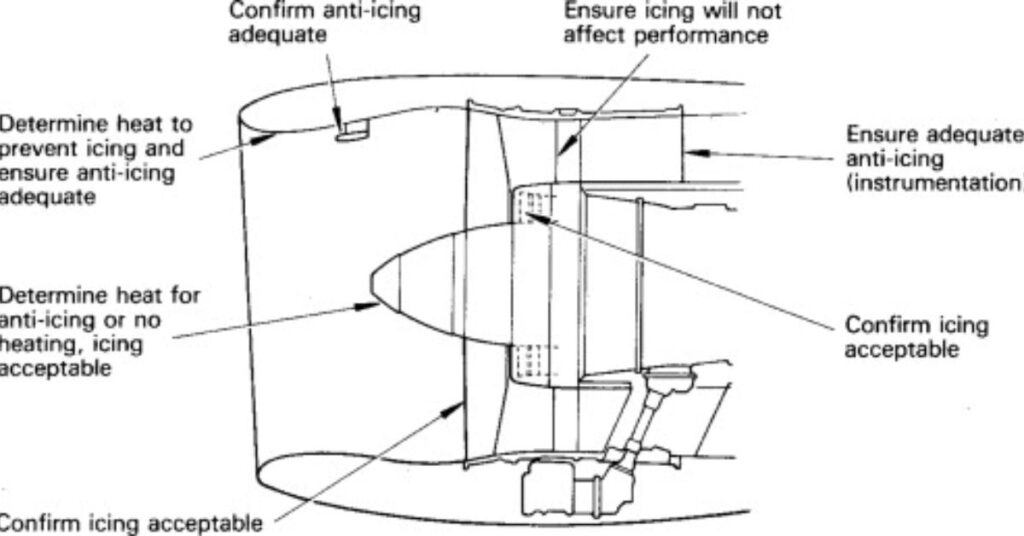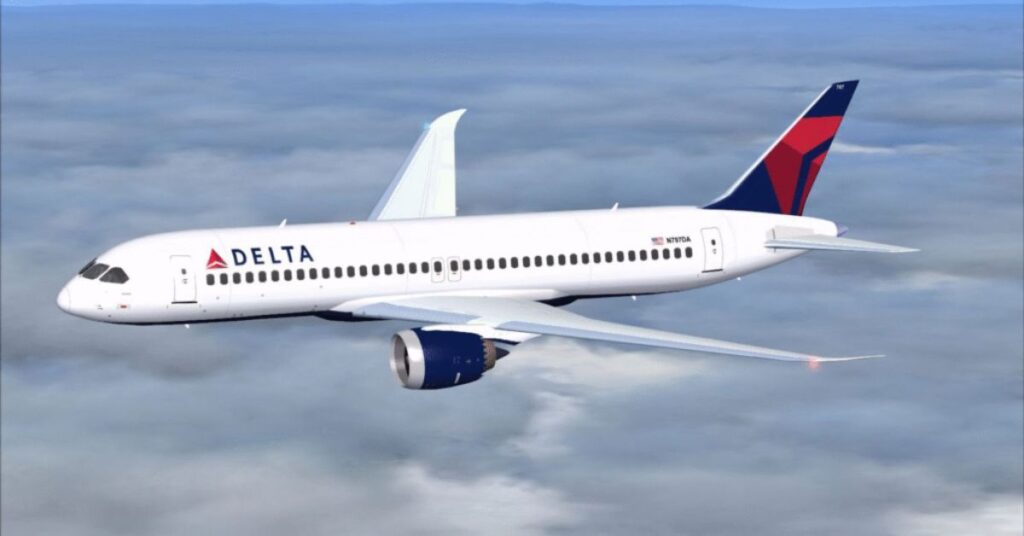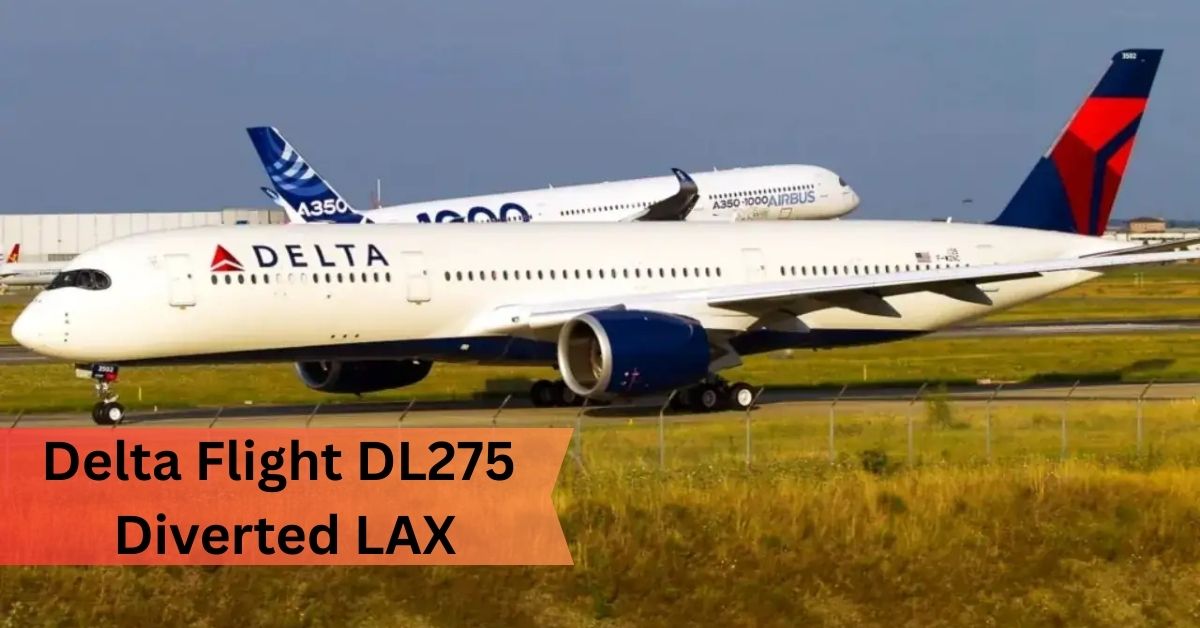I was first anxious when the pilot of Delta Flight DL275, which had been diverted from LAX, made the announcement. Everyone felt more at ease once the crew gave a thorough explanation of everything. When Delta Flight DL275 diverted LAX, I realized how important safety decisions are, even if it meant delays. Looking back, I felt grateful that the airline and pilots put our safety above all else during the whole Delta Flight DL275 diverted LAX experience.
Delta Flight DL275 diverted LAX after a technical issue, but the crew ensured passenger safety with calm communication and a smooth landing. The event showed that when Delta Flight DL275 diverted LAX, safety was always the top priority.
In This Article, We Discuss “Delta Flight DL275 Diverted LAX”
Why Did Delta Flight DL275 Divert to LAX?
The diversion was caused by a technical issue in the aircraft’s anti-ice system, a crucial safety mechanism.
1. The role of anti-ice systems:
Anti-ice systems prevent ice from accumulating on the engines and surfaces of airplanes. Moisture can quickly freeze at cruise altitude, causing a hazardous accumulation. The chance of engine damage or decreased lift significantly increases in the absence of these systems. When the Rolls-Royce Trent XWB engines’ system failed on DL275, quick action was taken.
2. Decision-making by the pilots:
The pilots faced a choice: continue the long transpacific journey with a system failure or divert to a nearby major hub. They opted for diversion, prioritizing passenger safety. This demonstrates the aviation principle that flights never compromise safety for schedules.
Why LAX Was Selected as the Diversion Airport:
Choosing the right diversion airport is a critical decision in flight operations.
1. Maintenance capabilities:
Los Angeles International Airport has full maintenance facilities capable of handling large jets like the Airbus A350. This meant engineers could address the technical issue quickly without flying the plane further in unsafe conditions.
2. Delta’s operational base:
Delta has a strong operational presence at LAX, including staff, spare parts, and support systems. This makes it easier for the airline to manage diversions there compared to smaller airports.
3. Passenger support:
LAX provided motels, dining services, and rebooking counters for travelers. Delta made sure that customer needs were handled more smoothly by switching to Los Angeles from a smaller West Coast airport.
How the Crew Responded During the Diversion:
The professionalism of the crew played a central role in the safe outcome.
1. Step-by-step protocol:
When the malfunction was detected, the pilots followed strict aviation procedures. They confirmed the failure, contacted Delta operations, and coordinated with air traffic control. Once the decision to divert was made, they adjusted the route and descent profile for LAX.
2. Passenger communication:
It’s critical to communicate clearly throughout interruptions. The captain reassured the passengers of their safety and provided them with updates on the diversion. By responding to inquiries and keeping everyone calm in the cabin, flight attendants offered assistance. Passengers feel more at ease during tense situations because of this blend of technical proficiency and human consideration.
Passenger Experience on Delta Flight DL275:
The distraction was both unnerving and comforting for the passengers.
1. Stress and uncertainty:
Passengers naturally worried about missing connections and the possibility of danger in the air. Social media posts from travelers revealed a mix of frustration and fear during the event.
2. Relief and safety:
Despite the disruption, the safe landing at LAX brought relief. Many passengers later acknowledged that the inconvenience was a small price to pay for ensuring their well-being.
3. Social media reactions:
The incident gained traction online as passengers tweeted updates and shared photos. Some praised the crew’s transparency, while others highlighted the confusion of rebooking. Although these conflicting responses are typical during diversions, they highlight the significance of communication during disruptions.
Technical Background: Why Anti-Ice Systems Are Critical

Source: sciencedirect
Understanding the technical side of the diversion helps illustrate why it was unavoidable.
1. How anti-ice works:
The anti-ice system directs hot air from the engine into key areas like engine inlets and wing edges. This prevents ice from forming and ensures consistent performance even in freezing conditions at 35,000 feet.
2. Risks of failure:
If the anti-ice system fails, ice can accumulate quickly. This can reduce airflow, disrupt engine performance, and in extreme cases, cause flameouts. Continuing a transpacific journey without this system would have exposed passengers and crew to unacceptable risks.
3. Why quick action matters:
Every minute spent in icy conditions without anti-ice protection increases the chance of dangerous buildup. The pilots’ quick decision to divert to LAX reflects how timing is critical in aviation safety.
What Happens After a Diversion:
The story doesn’t end with landing—the aftermath involves a coordinated effort across multiple teams.
1. Inspection and maintenance:
After Delta Flight DL275 landed, Delta engineers inspected the anti-ice system. To be sure there were no more hazards, the aircraft was grounded until the issue was completely fixed.
2. Passenger rebooking:
Delta rebooked travelers onto new flights to Tokyo Haneda, providing accommodations and meal vouchers to minimize inconvenience.
3. Crew reports and regulatory filing:
The crew filed official reports with Delta and aviation regulators. These documents are critical for improving safety and preventing similar issues in the future.
How Common Are Diversions Like DL275:
Diversions like this are rare, but they demonstrate aviation safety protocols working as designed.
1. Frequency of diversions:
Globally, less than 1% of flights end in diversions. For long-haul transpacific flights, the percentage is even lower.
2. Reasons for diversions:
Mechanical problems, bad weather, or passenger medical emergencies account for the majority of diversions. DL275’s anti-ice malfunction fits into the category of technical precaution.
3. Why diversions are positive:
While inconvenient, diversions are proof that the aviation industry values safety first. The fact that DL275 landed without incident is a success story, not a failure.
Public and Media Reactions to DL275:
The incident drew wide attention both online and in traditional media.
1. News coverage:
News outlets highlighted Delta’s safe handling of the situation, framing it as a success of training and technology.
2. Aviation community response:
Aviation experts praised the pilots for making a difficult but correct decision. They emphasized that safety always comes before convenience in professional flight operations.
3. Passenger reviews:
While some passengers expressed frustration about delays, others took to social media to thank the crew for their calm leadership. These mixed reactions highlight the emotional nature of diversions.
Lessons Travelers Can Learn from DL275:

Source: caprioara.co
1. Trust the crew:
Pilots train for uncommon but dangerous situations for years. Passengers need to trust their judgment.
2. Stay informed:
Airline apps and text alerts provide real-time updates during diversions. Staying connected reduces stress.
3. Plan:
Travel insurance, flexible tickets, and planning buffer time between connections can make diversions less disruptive.
Frequently Asked Questions:
1. What happens when your flight is diverted to Delta?
When a flight is diverted, a Delta flight diversion means the aircraft lands at an alternate airport for safety or operational reasons. Passengers are assisted with rebooking, meals, and accommodations to minimize inconvenience.
2. What happened with the Delta flight that flipped over?
The rare case of a Delta flight flipped over was due to severe weather conditions during landing. Fortunately, the airline adhered to stringent safety procedures, and passengers were assisted right away.
3. Why are so many Delta flights being cancelled today?
When you hear about a Delta flight being cancelled, it is often due to extreme weather, technical checks, or staffing challenges. These decisions are made to keep passengers safe rather than risk delays in the air.
4. What is the highest salary for a Delta flight attendant?
The Delta flight attendant’s salary at its highest can reach over $80,000 annually. Seniority, routes, and international assignments can significantly increase earnings.
5. What do Delta pilots make?
A Delta pilot’s salary varies depending on aircraft type and experience. Senior captains can earn well above $200,000 annually, reflecting their responsibility and training.
6. Which airline pays a high salary?
When it comes to pay, a high-salary airline includes Delta, American, and United, with Middle Eastern airlines like Emirates and Qatar also offering competitive packages.
7. Do Cabin Crew get free flights?
Yes, a cabin crew free flight benefit often includes discounted or complimentary tickets for themselves and sometimes for family members, making it one of the perks of the job.
8. What is the retirement age for Cabin Crew?
The cabin crew retirement age is generally around 55 to 60, though it may vary by airline. Some crew members may continue in ground roles after flying careers.
9. What is the lowest salary in airlines?
The lowest airline salary usually applies to entry-level cabin crew or ground staff, starting around $20,000 to $25,000 yearly, but this grows with experience and additional benefits.
10. Can an air hostess marry?
Yes, an air hostess marriage is completely allowed. Many continue their careers after marriage, balancing work and personal life with the support of airline schedules.
Conclusion:
The incident of Delta Flight DL275 diverted to LAX demonstrates the strength of modern aviation safety. What could have been a serious situation was managed with professionalism, training, and clear decision-making. Though passengers faced delays, the diversion ensured that everyone arrived safely. For travelers, this event is a reminder to trust aviation systems and crews, knowing that when unexpected issues arise, safety always comes first.
Read More:
Mike Wolfe’s Passion Project—A Complete Guide!
CLCU Online and Modern Digital Credit Union Banking – Everything You Need to Know
Lufanest Ultimate Guide—15 Powerful Insights You Must Know!
Happy Mod—A Complete Guide!



